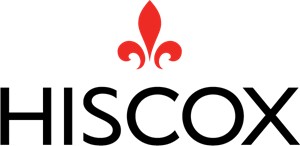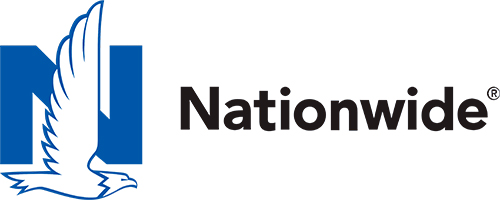Employment practices liability insurance (EPLI) protects small businesses from liability arising from employment practices as they relate to employees. Claims against the business for wrongful termination, sexual harassment, or gender discrimination are examples of employment practices that EPLI covers. Small businesses can purchase EPLI as a stand-alone policy for $800 to $5,000 per year or bundle it with existing policies for as little as $400 annually.
For a no-obligation EPLI insurance quote, check out The Hartford. Its experts can assess the EPLI needs of your business and get you a customized quote in minutes.
EPLI Insurance Coverage & How It Works
EPLI protects your entire company from employment-related lawsuits. It pays for your legal defense costs when a lawsuit is filed against your business by a current or former employee—or even a job candidate—because they believe they were subject to discrimination or punitive action. Some policies include independent contractors for coverage but ensure to review the policy closely with your agent.
Most insurance companies offer EPLI as a claims-made policy, meaning the insurer only covers losses when both the incident and the claim notification occur while the policy is active. If an employee files an EPLI claim after the policy has been canceled, the insurance will not cover the loss because the policy is no longer active.
Did You Know? As a business owner, you face a greater chance of a former employee suing your business than your business catching on fire. According to the federal agency Equal Employment Opportunity Commission (EEOC), which handles federal employment complaints, nearly 170 charges of employment practices are filed every day. According to the EEOC, retaliation claims are the most frequent. Of all claims filed in 2020, 55.8% were for retaliation in the workplace.
EPLI Insurance Claim Examples
EPLI covers wrongful acts in hiring employees, terminating employees, and employment practices.
According to the EEOC, the top three complaints are:
- Retaliation: For example, an employee testifies in a worker’s compensation case about their employer’s negligence and, after the trial, is fired.
- Race discrimination: An Asian American employee learns that despite having the same education, experience, and job title, they make 20% less than their Caucasian colleagues.
- Disability: A candidate discloses a disability during the interview process and from the interviewer’s reaction feels their disability was the reason they did not get the job.
Other claims covered by EPLI include:
- Age discrimination: For example, an employee in their 50s is let go as part of a “downsizing” move. The company hires a much younger employee for the same role a month later.
- Pregnancy discrimination: A new employee informs her employer she is two months pregnant and is fired shortly after being hired for a job.
- Wrongful termination: An employee makes a mistake on a customer order and is fired. However, the employer did not utilize their handbook with guidelines for coaching these situations.
What EPLI Insurance Doesn’t Cover
Insurance policies do not provide coverage for every loss. These gaps in coverage are called exclusions and are usually scenarios spelled out within the policy. Typically, other policies provide coverage when EPLI does not. That is why it is essential to ensure your business is appropriately protected.
Because EPLI is specific to employment-related practices, the coverage does not extend to third-party property damage or bodily injury claims that a general liability policy would cover. If an employee is injured while working, that would be a claim for your workers’ compensation policy. Should the injured employee accuse the business of negligence that resulted in their injury, that claim would be under the employer’s liability insurance.
Importantly, EPLI is targeted more for employees and not for directors and officers (D&O). You can also purchase separate D&O coverage, which provides protection for individual officers of the company against the same types of claims.
EPLI Insurance Costs
The estimated average cost of EPLI insurance for a small business is $395 a month. However, EPLI insurance costs can vary widely depending on many factors:
- Type of business: The nature of your business, whether it is prone to high or low risk, impacts the overall carrier’s premium evaluation for your policy.
- Number of employees: A business with three part-time employees is less likely to experience an EPLI claim than a business with 100 full-time employees.
- Employee turnover: High turnover rates tell carriers there is a greater potential for employment practices like wrongful termination.
- Hiring and firing practices: Many carriers will ask you during the quoting process what your policies are for hiring and terminating an employee and if you have an employee handbook.
- Protected revenue: Larger businesses with higher revenue have more to protect, requiring higher coverage amounts and increasing costs.
- Claims history: Nearly every carrier will ask if the business has any existing or pending EPLI claims.
- Payroll: Many EPLI claims are directly related to the employee’s wage amount, so the higher overall payroll expense for the business can impact the premium.
- Deductible or self-insured retention (SIR): EPLI insurance often has either a deductible or self-insured retention, aka the amount the policyholder is responsible for in a claim. Selecting a higher amount typically lowers your premium.
All of the above factors mentioned will form a profile that your insurance carrier will use to rate your policy.
Before You Apply for EPLI
Showing a prospective carrier that you are being proactive in mitigating risk can help with the application process. Consider doing the following, if you haven’t already:
- Establish written policies for hiring, coaching, internal promotion, anti-discrimination, and termination to help prevent claims. Also, read up on the common illegal interview questions.
- Create an at-will policy. Many carriers stress the importance of creating an at-will employment policy that employees must sign, but keep in mind that state laws vary on at-will policies.
- Craft a comprehensive employee handbook that centralizes your company policies.
- Consider hosting annual training for employees on how to avoid discrimination and harassment in the workplace.
EPLI Insurance Carriers
Even if EPLI claims never reach litigation, they can be expensive. Healthy employment practices require a robust knowledge of local, state, and federal guidelines and many carefully planned policies and procedures. For those reasons, when looking for an insurer, consider one that provides human resources (HR) support services and has a strong credit rating from an agency like AM Best:
- The Hartford: Best overall provider for EPLI Insurance
- AmTrust: Best for covering different employees
- Hiscox: Best for quick online quotes
- Travelers: Best for resources on employment practices
- Nationwide: Best for free legal advice
The Hartford: Best Overall Provider for EPLI Insurance

Pros
- Available bundled or as a stand-alone policy
- Includes a no hammer clause
- In-house claims specialists
Cons
- It may be difficult to get an online quote for EPLI
- You must call to purchase the policy
Standout Features
- EPLI offered with a business owner’s policy (BOP) has extended coverage for third-party individuals who accuse the business of harassment or discrimination
- Prevention and education services through Hartfordhelp.com, a dedicated website related to employment practices
- High limits and hour defense coverage for charges of wage discrimination
- Helpline available for policyholders who have EPLI-related questions
Financial stability: It is important to know a carrier has the money to pay claims, and The Hartford does. The Hartford’s AM Best rating is strong at an A+ (Superior).
AmTrust: Best for Covering Different Types of Employees

Pros
- Claims-made and claims-reported forms available
- Enhanced coverage option for punitive damages
- Available with BOP or workers’ comp
Cons
- Cannot get a quote directly online
- Larger companies face a lengthier process for getting insurance
- Only some lines of coverage have a 24/7 claims reporting hotline
Standout Features
- Writes EPL coverage for over 350 class codes—meaning numerous different small businesses can find insurance
- Full-time, part-time, seasonal, volunteers, and independent contractors all fall under the coverage
- Online library with over 11,000 articles and 5,000 best practice checklists
- AmTrust has a dedicated site, Employment Risk Solutions, to help your company proactively develop healthy employment practices.
Financial stability: AM Best rated AmTrust (no relationship) an A- (Excellent).
Hiscox: Best for Quick Online Quotes

Pros
- Established leader in EPLI data research and analysis
- 180-day extended reporting period
- Dedicated small business insurer with in-house claims team
Cons
- Only available for seven industries: accommodation, food services, agriculture/forestry/fishing, construction, manufacturing, professional services, and retail
- No longer accepting applications from metro areas in California
- No 24/7 claims call center
Standout Features
- Hiscox offers a quick and easy online quoting process to get EPLI insurance online
- Offers Hiscox C-Suite, a management liability policy package designed for businesses with fewer than 1,000 employees
- C-Suite includes EPLI, directors and officers, and fiduciary liability insurance
- Other key policies a small business needs are available through Hiscox, including general liability and BOP
Financial stability: Hiscox is a new small business insurer with a history rooted in the turn of the century. Its financial position is solid, as Hiscox’s AM Best rating is an A- (Excellent).
Travelers: Best for Free Resources for Employment Practices

Pros
- Over 160 years of experience in insurance
- Experienced, in-house claims adjusters
- Strong financial rating
Cons
- EPLI is available only through a BOP
- No online quotes for any type of commercial insurance
Standout Features
- Travelers provides its customers with Risk Management Plus+ Online®, a dedicated website that shares management guidance on liability, crime, and risk mitigation
- Through Risk Management Plus+ Online®, access checklists, short instructional videos, podcasts, and over 6,000 articles on issues employers face
- Helpline staffed with employment practices attorneys available if you need guidance
- Coverage for legal defenses regardless of the verdict
Financial stability: With a history stretching back more than 100 years and a global presence, Travelers is in a great financial position. AM Best’s rating of Travelers is an A++ (Superior).
Nationwide: Best for Free Legal Advice

Pros
- EPLI is available as an endorsement on a BOP or general liability
- 24/7 claims call center
- Online portal to manage your policy
Cons
- Quotes only available through agents
- No process for obtaining an online COI
Standout Features
- Nationwide offers a dedicated loss control website where policyholders can access forms, policies, and advice on employment-related issues
- Online training and handbook policies available for EPLI customers
- Partnered with a national law firm that specializes in employment practices lawsuits to provide a free hotline that dispenses confidential advice to current scenarios employers face and is available in multiple languages
- Flexible coverage options beyond EPLI for small businesses
Financial stability: Nationwide has the solid financial strength you want to handle costly EPLI claims. Nationwide has an AM Best rating of A+ (Superior).
Frequently Asked Questions (FAQs)
PLI stands for employment practices liability insurance. It is an important policy that all employers should strongly consider because it provides coverage if you are accused of unfair hiring or firing practices. It also has a pretty wide range of coverage during employment including for sexual harassment.
No, EPLI is not required by law. However, it is a good idea to carry it. It has a broad range of coverage, including accusations of discrimination during the interview phase of a potential employee.
Not exactly. Workers’ compensation policies from non-monopolistic states do carry a form of employer liability protection. However, this coverage is usually related specifically to the employer’s liability if the employee is injured or falls ill from their job and not to any of the other areas related to employment liability.
Bottom Line
Nearly every small business with employees is at risk of employment-related incidents that can lead to litigation and expensive claims. EPLI policies cover these claims by paying for your legal defense, including awards and settlements.
The Hartford makes insuring your business from EPLI claims easy. Its experts will create a customizable policy to cover you against EPLI claims at the right price. Get a no-obligation quote online in minutes.